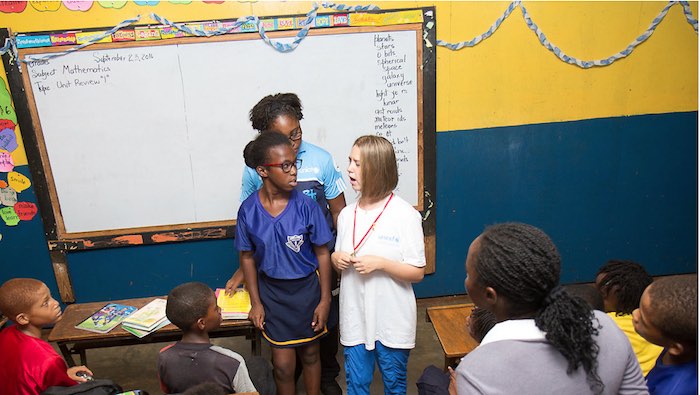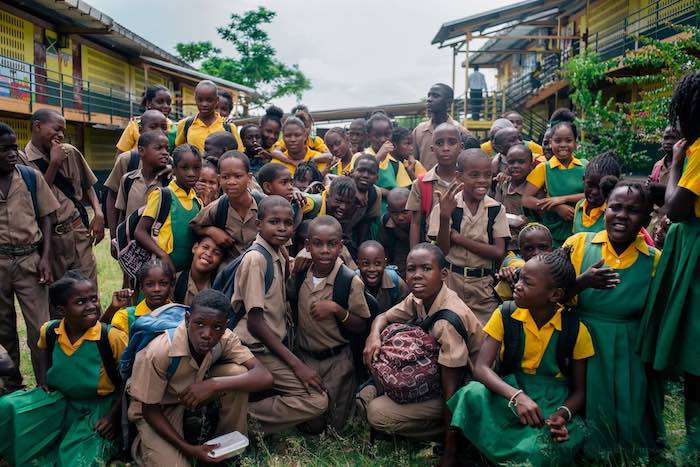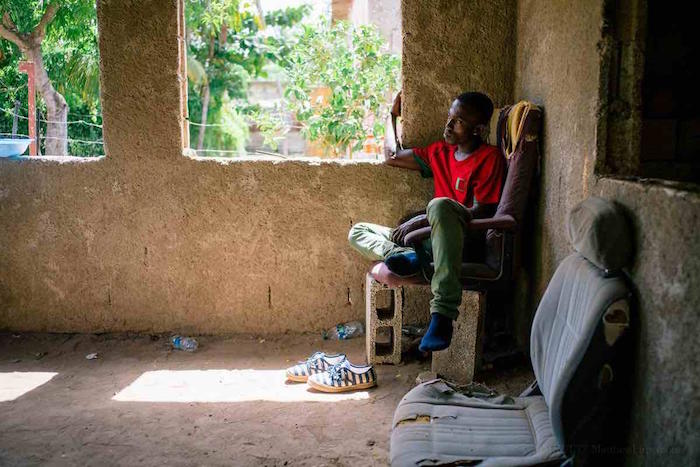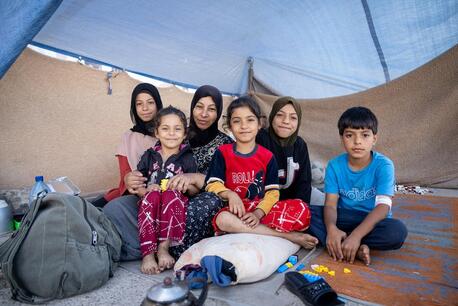
UNICEF Staffers Concerned for Jamaica as Hurricane Matthew Nears
Jamaicans are hurriedly preparing for Hurricane Matthew, now bearing down on their part of the world with increasing fury.
For decades, UNICEF has been working in Jamaica to improve the lives of children in four key areas: creating and supporting quality education; protecting children from abuse and violence; providing mental and physicial health services; and preparing for emergencies and natural disasters — such as Hurricane Matthew on the horizon.
Many U.S. Fund for UNICEF staffers and partners have recently visited Jamaica and have firsthand knowledge of the potential impact of Hurricane Matthew on children there.
Thinking about all of my new friends in Jamaica and hoping that the hurricane doesn't hurt them. I miss and love you guys. Stay safe. pic.twitter.com/9N4vBKHJ2c
— Lucy Meyer (@teamlucymeyer) October 2, 2016
Seventeen-year-old Lucy Meyer is a Paralympics athlete and a spokesperson for the U.S. Fund for UNICEF's partnership with the Special Olympics, championing UNICEF's work to reach and improve the lives of children of all backgrounds and abilities. Sport can be a valuable tool in empowering children with disabilities, teaching them life skills while raising awareness to build more inclusive societies.
In September, Lucy went to Jamaica to see the partnership in action. As one Kingston newspaper put it, she was there to break down barriers for children with special needs. Lucy visited Westmoreland and Hanover, where school attendance is lowest — areas now in Hurricane Matthew’s path.
A U.S. Fund for UNICEF staff member accompanied Lucy to the island. She tells us what they found there — and what she fears for the country's children in the event of a serious storm like Hurricane Matthew.
"One thing that hit home for us during the visit was the vast remoteness of the island. School attendance is already a problem due to lack of transportation. There are few roads to the small towns. If one road closes, resources and supplies can't get there. And special needs children already require more supplies — supplies they can't always get even in the best of times."

©2016/UNICEF Jamaica/Jik-Reuben
One of the many children Lucy met in Jamaica is Angel, a special needs student at Newcombe Valley Primary School, in Treasure Beach, St. Elizabeth Parish. According to her teacher, Angel is a success story — fully integrated into the class and treated no differently.

©2016/U.S. Fund for UNICEF/Matthew K. Firpo
Despite the accomplishments of children such as Angel, access to primary and secondary school is relatively low in Jamaica. Of particular concern is the low achievement of boys and children from the poorest and most volatile communities.

©2016/U.S. Fund for UNICEF/Matthew K. Firpo
"Violence prevention is key," says one U.S. Fund staff member after a recent visit to oversee UNICEF programs in Jamaica. "I've been to a school where students were asked if they had ever seen severe violence up close. All of the children raised their hands."
Thus Jamaica strives to improve the quality of therapeutic services and community-based interventions for vulnerable children, to keep them out of harm's way — and on track for a stable and happy life that is less likely to be permanently derailed by a hurricane.
HOW TO HELP
There are many ways to make a difference
War, famine, poverty, natural disasters — threats to the world's children keep coming. But UNICEF won't stop working to keep children healthy and safe.
UNICEF works in over 190 countries and territories — more places than any other children's organization. UNICEF has the world's largest humanitarian warehouse and, when disaster strikes, can get supplies almost anywhere within 72 hours. Constantly innovating, always advocating for a better world for children, UNICEF works to ensure that every child can grow up healthy, educated, protected and respected.
Would you like to help give all children the opportunity to reach their full potential? There are many ways to get involved.




